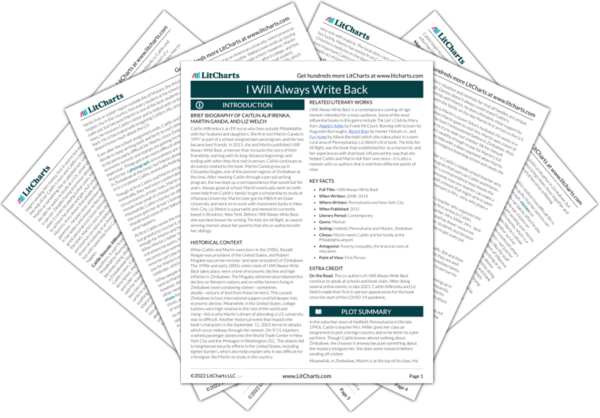Martin faces a difficult problem. He knows that Caitlin and her family have more than enough money to pay for his schooling, but he also knows that asking them for money could affect his relationship with Caitlin. Ultimately, if he wants to stay in school, he really doesn’t have any other option—this passage illustrates how poverty limits a person’s choices. Though Martin is lucky to have Caitlin to ask, it is easy to imagine how other boys in Martin’s position would face an even more difficult problem getting educated.
